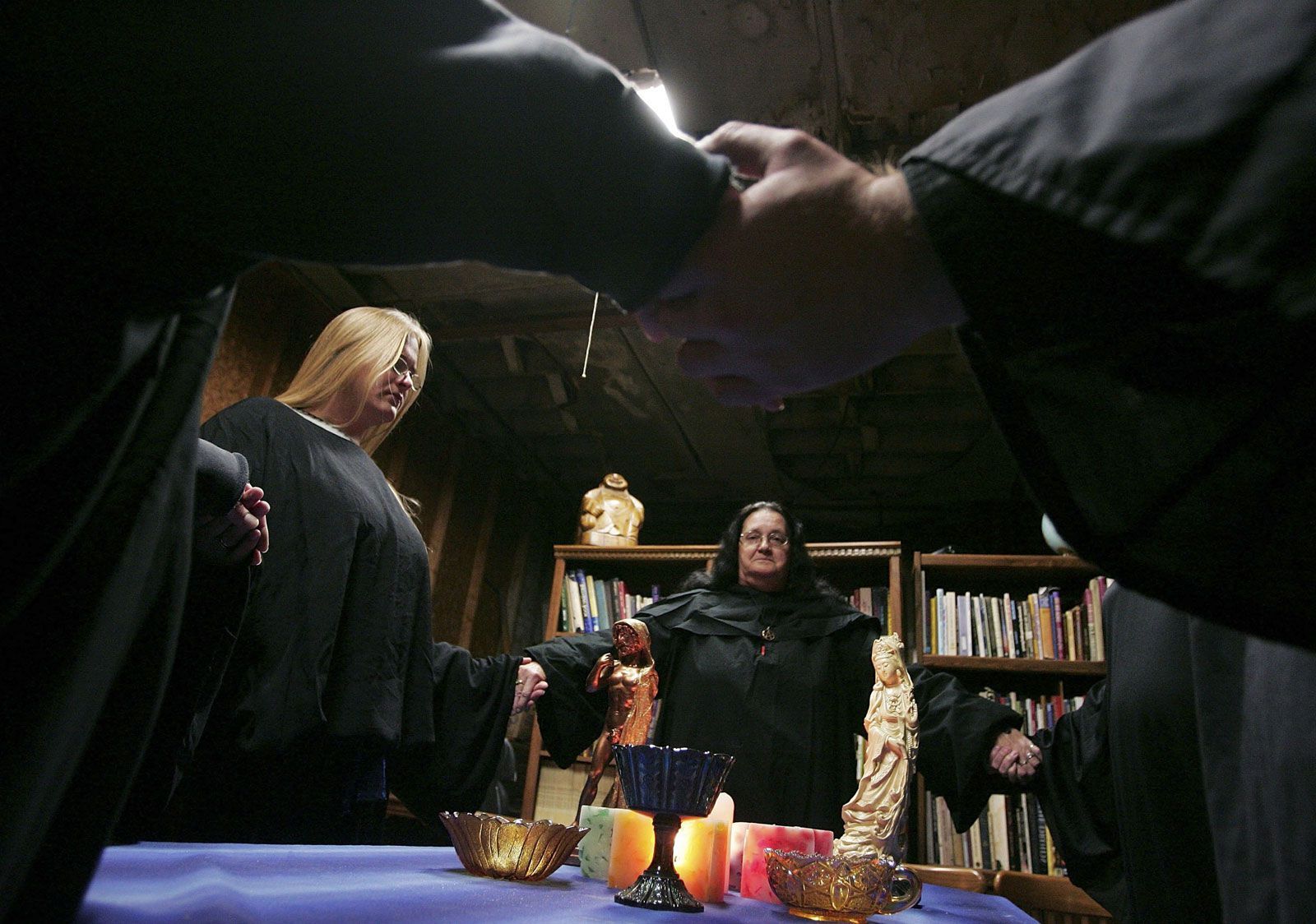
Occult practices have always intrigued people, shrouded in mystery and secrecy. From ancient rituals to modern-day witchcraft, the occult encompasses a wide range of beliefs and practices that often challenge mainstream religious and scientific views. But what exactly is the occult? Occult refers to hidden or secret knowledge, often involving the supernatural, mystical, or magical. This can include anything from astrology and alchemy to tarot cards and séances. Whether you’re a skeptic or a believer, understanding the occult can offer fascinating insights into human culture and history. Ready to dive into the enigmatic world of the occult? Let's explore 30 intriguing facts that will shed some light on this shadowy subject.
Occult: A Mysterious World
The occult has fascinated humanity for centuries. From ancient rituals to modern-day practices, the occult encompasses a wide range of beliefs and activities. Here are some intriguing facts about this enigmatic subject.
- The word "occult" comes from the Latin word "occultus," meaning hidden or secret.
- Occult practices often involve the use of symbols, rituals, and ceremonies to connect with supernatural forces.
- Many occult traditions trace their origins back to ancient civilizations like Egypt, Greece, and Mesopotamia.
- Alchemy, an early form of chemistry, is considered an occult science aimed at transforming base metals into gold and discovering the elixir of life.
- The Hermetic Order of the Golden Dawn, founded in the late 19th century, is one of the most influential occult societies in Western history.
- Tarot cards, used for divination, originated in the 15th century and are a staple in many occult practices.
- Astrology, the study of celestial bodies' influence on human affairs, is a significant aspect of the occult.
- Occultism often involves the belief in hidden or esoteric knowledge that is not accessible to the general public.
- The concept of the "third eye" in occultism refers to an inner vision or spiritual insight beyond ordinary sight.
- Occult practices can include the use of talismans and amulets believed to possess magical properties.
Occult Symbols and Their Meanings
Symbols play a crucial role in the occult, often serving as tools for communication with the spiritual realm. Here are some well-known occult symbols and their meanings.
- The pentagram, a five-pointed star, is often associated with protection and balance.
- The ankh, an ancient Egyptian symbol, represents life and immortality.
- The Eye of Horus, another Egyptian symbol, is believed to offer protection and health.
- The ouroboros, a serpent eating its own tail, symbolizes the cycle of life, death, and rebirth.
- The sigil, a unique symbol created for a specific magical purpose, is used in various occult rituals.
- The triquetra, a three-pointed knot, represents the interconnectedness of mind, body, and spirit.
- The hexagram, or Star of David, is used in occult practices to symbolize the union of opposites.
- The caduceus, a staff with two serpents, is associated with healing and transformation.
- The all-seeing eye, often depicted within a triangle, represents divine insight and omniscience.
- The labyrinth, a complex maze, symbolizes the journey of self-discovery and spiritual enlightenment.
Famous Occult Figures
Throughout history, several individuals have become synonymous with the occult. Their contributions and practices have left a lasting impact on the field.
- Aleister Crowley, an English occultist, founded the religion of Thelema and wrote extensively on magic and mysticism.
- Helena Blavatsky, a Russian spiritualist, co-founded the Theosophical Society and promoted the study of ancient wisdom.
- John Dee, a 16th-century mathematician and astrologer, served as an advisor to Queen Elizabeth I and practiced alchemy and divination.
- Eliphas Levi, a French occultist, is known for his works on ceremonial magic and the Kabbalah.
- Gerald Gardner, an English Wiccan, is credited with founding modern Wicca and reviving interest in witchcraft.
- Anton LaVey, an American occultist, founded the Church of Satan and authored "The Satanic Bible."
- Manly P. Hall, a Canadian author, wrote extensively on esoteric subjects and founded the Philosophical Research Society.
- Israel Regardie, an English occultist, published works on the Golden Dawn and practiced ceremonial magic.
- Dion Fortune, a British occultist, wrote influential books on magic and psychic self-defense.
- Franz Bardon, a Czech occultist, authored several books on Hermetic magic and spiritual development.
The Mysteries Continue
The occult world is vast and filled with intriguing secrets. From alchemy to astrology, these practices have fascinated people for centuries. While some see them as mere superstitions, others believe in their hidden powers. Whether you're a skeptic or a believer, there's no denying the impact the occult has had on history and culture.
Exploring these mysteries can be both exciting and enlightening. You might find yourself drawn to the symbolism in tarot cards or the mystical properties of crystals. Whatever your interest, the occult offers a rich tapestry of knowledge and wonder.
Keep an open mind and continue your journey into the unknown. Who knows what secrets you might uncover? The world of the occult is always waiting for those curious enough to explore.
Was this page helpful?
Our commitment to delivering trustworthy and engaging content is at the heart of what we do. Each fact on our site is contributed by real users like you, bringing a wealth of diverse insights and information. To ensure the highest standards of accuracy and reliability, our dedicated editors meticulously review each submission. This process guarantees that the facts we share are not only fascinating but also credible. Trust in our commitment to quality and authenticity as you explore and learn with us.


